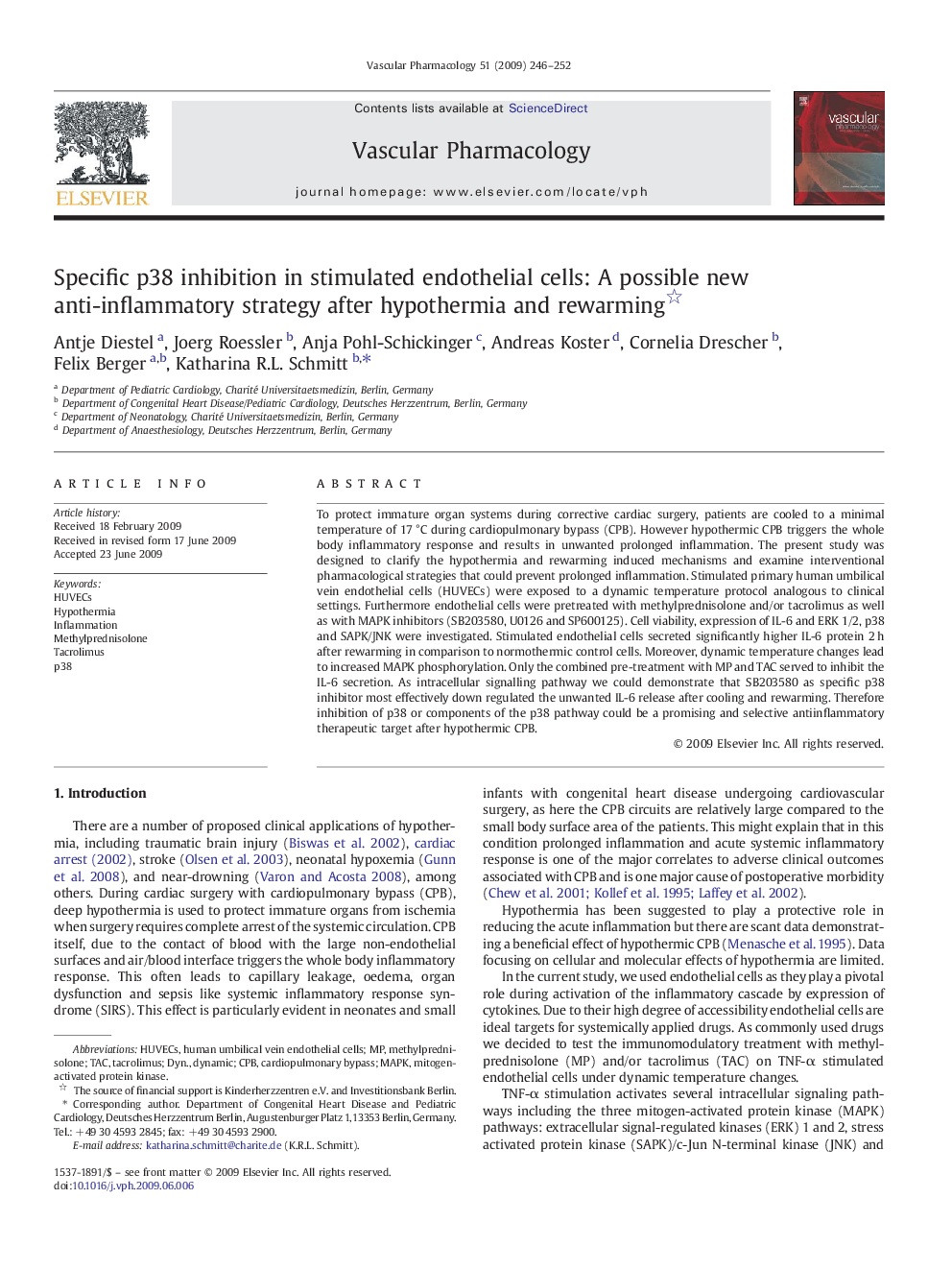| Article ID | Journal | Published Year | Pages | File Type |
|---|---|---|---|---|
| 2574521 | Vascular Pharmacology | 2009 | 7 Pages |
Abstract
To protect immature organ systems during corrective cardiac surgery, patients are cooled to a minimal temperature of 17 °C during cardiopulmonary bypass (CPB). However hypothermic CPB triggers the whole body inflammatory response and results in unwanted prolonged inflammation. The present study was designed to clarify the hypothermia and rewarming induced mechanisms and examine interventional pharmacological strategies that could prevent prolonged inflammation. Stimulated primary human umbilical vein endothelial cells (HUVECs) were exposed to a dynamic temperature protocol analogous to clinical settings. Furthermore endothelial cells were pretreated with methylprednisolone and/or tacrolimus as well as with MAPK inhibitors (SB203580, U0126 and SP600125). Cell viability, expression of IL-6 and ERK 1/2, p38 and SAPK/JNK were investigated. Stimulated endothelial cells secreted significantly higher IL-6 protein 2 h after rewarming in comparison to normothermic control cells. Moreover, dynamic temperature changes lead to increased MAPK phosphorylation. Only the combined pre-treatment with MP and TAC served to inhibit the IL-6 secretion. As intracellular signalling pathway we could demonstrate that SB203580 as specific p38 inhibitor most effectively down regulated the unwanted IL-6 release after cooling and rewarming. Therefore inhibition of p38 or components of the p38 pathway could be a promising and selective antiinflammatory therapeutic target after hypothermic CPB.
Keywords
Related Topics
Health Sciences
Medicine and Dentistry
Cardiology and Cardiovascular Medicine
Authors
Antje Diestel, Joerg Roessler, Anja Pohl-Schickinger, Andreas Koster, Cornelia Drescher, Felix Berger, Katharina R.L. Schmitt,
